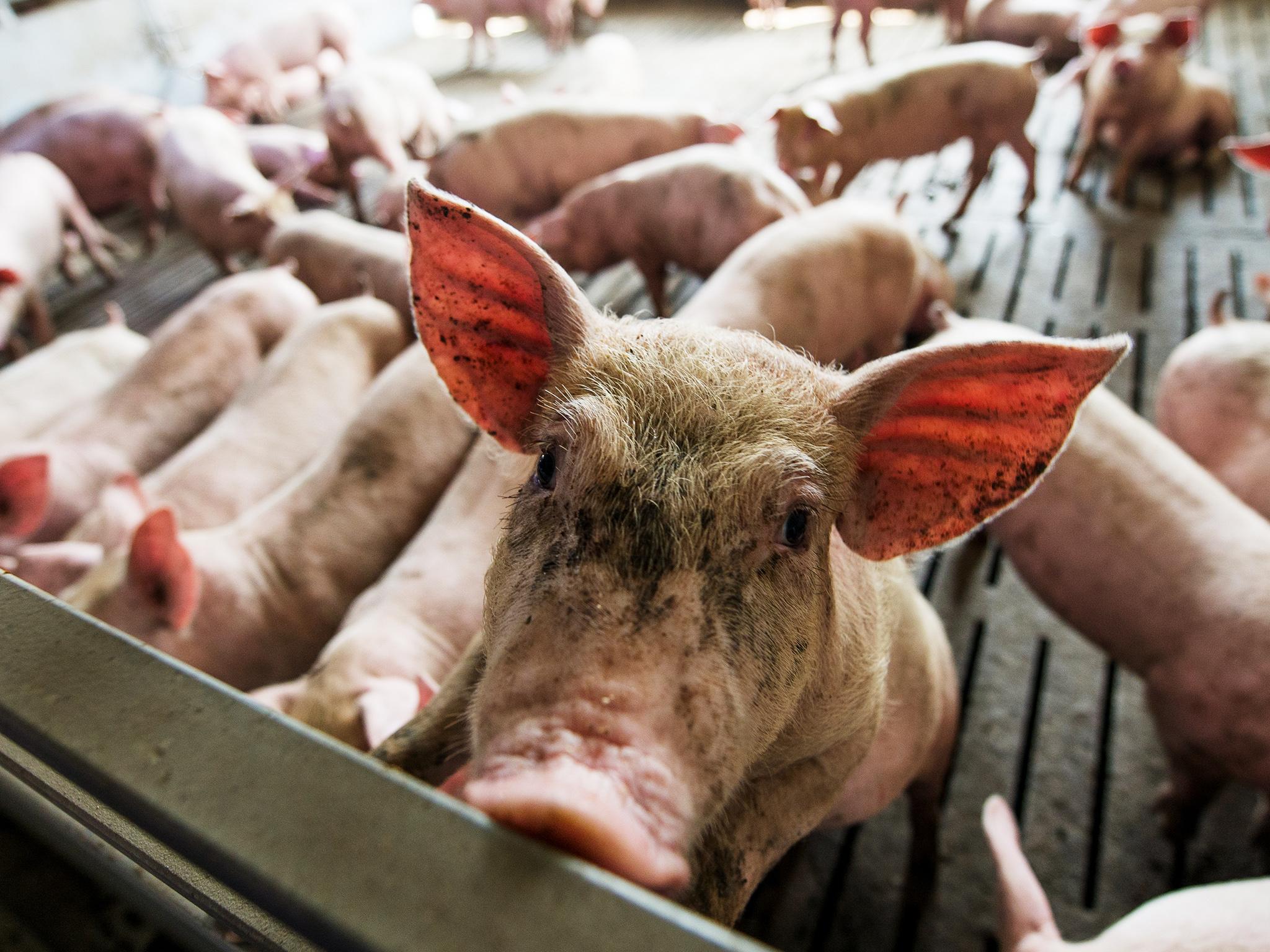UK slaughterhouses killing more animals despite growth of veganism
Overseas market drives increase of 5.4 per cent since 2017

British slaughterhouses are killing more animals for meat every year to supply the overseas market, despite the increasing popularity of plant-based diets in the UK.
Almost 28.8 million farm animals were killed for meat in 2019, marking an increase of 5.4 per cent in two years, government figures show.
On average, 78,900 cows, sheep and pigs were killed per day in 2019, up from 74,800 a day in 2017, according to the Department for Environment, Food and Rural Affairs.
Meanwhile, this month nearly 400,000 Britons signed up for Veganuary – pledging to eat a plant-based diet for January 2020.
The Association of Independent Meat Suppliers (Aims), a union of 250 small and medium sized abattoirs which deal with around half of the nation’s animals, said the increase in slaughtered animals is likely to be the result of greater demand for meat abroad.
How they reach your plate: live animal transport worldwide
Show all 16A spokesperson said: “From an Aims perspective, the increase is due to increased export sales across red meat, and in particular pork.
“Increased tonnage was sent as a result of their outbreak of African Swine Fever (ASF) which decimated the Chinese pig population during 2019.”
After stable growth for two decades, world meat production went into decline when ASF devastated the East Asian pig population, according to a report by the UN Food and Agriculture Organisation (FAO) published last November.
Edward Barker, a senior policy adviser from the National Pig Association, said increasing consumer demand for meat was the reason for the rise.
“Demand drives everything, and is the only real explainer for why we are seeing any increases in slaughtering or consumption,” he said.
According to the OECD-FAO outlook report, pig meat consumption in China, Japan, Korea, and Vietnam is on the rise – whereas in the European Union it is expected to decline.
Meanwhile, one in eight Britons is vegetarian, according to Sainsbury’s 2019 analysis of consumer habits – which predicts a quarter will be by 2025.
Veganism has also been growing “exponentially” in this period, and there are now 600,000 vegans in the UK, according to the Vegan Society.
Being vegan means avoiding eating all animal products – including meat, fish, dairy and eggs – and “ethical veganism” became a philosophical belief protected in UK law under the Equality Act 2010 earlier this month.
Dominika, a Vegan Society spokesperson, said she was still “very optimistic” about the future of veganism despite the “very saddening” number of animals killed in the UK every year.
“Veganism has made its way out of specialist health stores and into mainstream supermarkets, with more people cutting down on their meat, dairy and egg consumption,” she said.
“There’s admittedly a long way to go before the world turns vegan, but we are very optimistic about the future of veganism thanks to the growing awareness and all the wonderful alternatives to animal products being launched.”
Press Association
Subscribe to Independent Premium to bookmark this article
Want to bookmark your favourite articles and stories to read or reference later? Start your Independent Premium subscription today.

Join our commenting forum
Join thought-provoking conversations, follow other Independent readers and see their replies